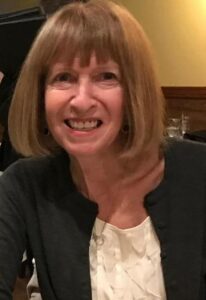The firsthand and the inter-generational experience are the key, without it there is no memory once that first generation is gone.
My Mother’s Warsaw was called the Paris of the North, in vivid details the book describes the vibrant life, politics, Zionism, Bund, economy, social, religious and thriving creative life. After WWI, my mother’s community, siblings, extended family came to life. Jews had a long history in Poland, their future was forever severed, never to recover. The second part of the book details how those who ran east survived throughout Soviet Russia and Uzbekistan, a harsh exile that saved them from Hitler’s murderer’s grip.
Memory is Our Home is written for high school, college age readers in mind and beyond. A rich, living document, a thirty-year account that reveals a vibrant life and the Eastern European, twentieth-century Jewish history, community and culture now completely erased. Rarely has a book been written that pencils a portrait of daily Jewish life during the interwar years in Poland, the Poland that was under Nazi’s murderers grip and the fate of Jews surviving throughout Russia and Uzbekistan during WWII. My mother survived against all ads, in Russia, in the midst of all the tragedy she even experienced love.
A shocking repatriation to the “vast graveyard” and Jewish life under a new kind of oppression, communism, in postwar Poland followed. Based on my mother’s diary, interwoven are stories she told to me throughout my life, as well as my own recollections as my family made a new life in the shadows of the Holocaust aftermath in Communist Poland after the war and into the late 1960s. By retelling this story, I shed light on how history affected the next generation. The price my family paid when we said good-bye to the old world and the challenges we faced in America.
It is said that in every survivor’s family, one child is unconsciously chosen to be a “memorial candle,” to carry on the mourning and to dedicate his or her life to the memory of the Shoah. That child takes part in the parents’ emotional world, assumes the burden, and becomes the link between past and future. I realize now that my mother chose me to be that candle.
It was while I was a student of Professor Elie Wiesel at the City University of New York that I began to think my mother’s life story needs to be recorded. When I told Wiesel about my mother’s life he said, “Your mother must write her story. Future generations must know. You must help her to do it.” It was at great risk to her health and sanity that she re-entered the world she suppressed for so long in order to write her story. She bravely faced the ghosts she left behind in Warsaw and Russia and brought them back to life. My mother wrote in her native language, Polish, the journals she called Beshert, Meant to Be, to honor her generation that had perished, made silent.
Wiesel insisted my mother write down the accounts she shared with me, he told us to commit everything to paper. His impact on me and my mother’s determination to give her generation a voice is how I became a memory keeper. In June 2016, before Wiesel’s passing, I presented “Crossing Paths with Elie Wiesel” on the stage in Santa Monica, CA as part of storytelling, about influential People in our lives. But it will be up to the next generations to make sure those firsthand accounts stay relevant in the future. Crossing Paths with Elie Wiesel https://suzannaeibuszyc.substack.com/p/crossing-paths-with-elie-wiesel
I graduated from CCNY with a BA, at the department of Jewish studies, where I first met Professor Elie Wiesel. I received an MA from UCLA, and was awarded a grant which allowed me to travel to Poland and Israel. Meeting professor and writer Elie Wiesel made me realize the importance of Holocaust survivors’ stories. And ultimately, I addressed how growing up with the trauma of Holocaust aftermath was transmitted from my parents to me. Memory is Our Home: A Seed Planted in Childhood https://www.brandeis.edu/hbi/blog/2015/0826-memory.html
http://lightning-and-ashes.blogspot.com/2015/01/memory-is-our-home-by-suzanna-eibuszyc.html

